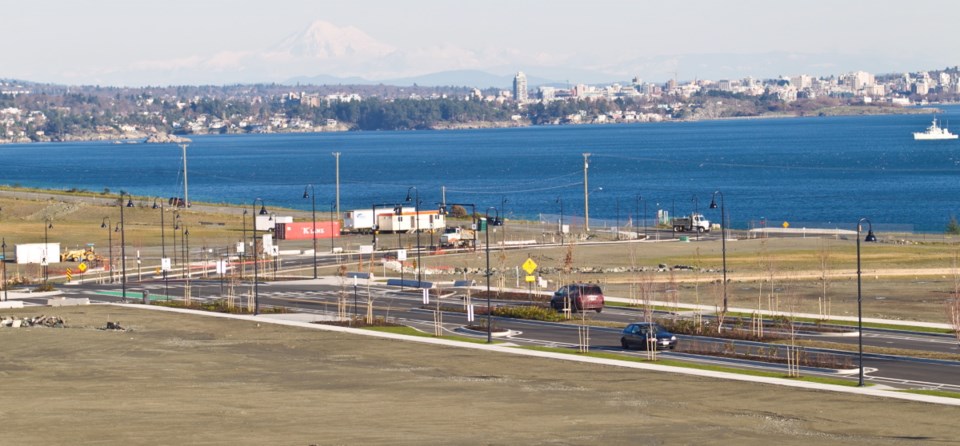Developers in Colwood will have to control dust or face a fine, after 2015’s especially dry summer drew a record number of complaints from residents.
Colwood council voted Monday night to compel developers to reduce dust emissions from construction, excavation, soil-deposit and soil-removal activities by applying water or another dust suppressant. The bylaw applies to areas where dust is liable to disturb peace or contaminate the atmosphere.
Those who fail to comply will face a fine of $1,000 per infraction per day.
“What we’re trying to do is make sure developers are good neighbours,” Coun. Rob Martin said.
Although it’s not a new problem, complaints have increased with drier summers and larger developments.
Most complaints came from the Latoria Road and Royal Bay areas, he said. In one case, several residents said their freshly painted homes got a coat of dust during a demolition in the area.
The bylaw isn’t about punishing developers, but compelling them to reduce the negative impact of their work, Mayor Carol Hamilton said.
Many developers already do so, she said, citing one example where a developer installed an air-filtration system for a nearby apartment building.
Casey Edge, executive director of the Victoria Residential Builders Association, was critical of the bylaw. Dust is an expected byproduct of development, he said, and water used for suppression will evaporate quickly on a hot, dry day.
“You can do the best you can to try to use water trucks and suppress the dust, but if it’s a hot, dry day in August, there’s only so much you can do,” Edge said. “There has to be some realism on the part of the community."
Council also voted to advise all current developments to discontinue commercial gravel processing in residential areas. “It would mean you’re still OK to blast and you’re still OK to crush if it’s for that specific development, but you can’t take it off-site,” Martin said.
Last spring, homeowners on Pondside Terrace said rock blasting at a construction site 100 metres away on Latoria Road sent rocks crashing through the neighbourhood, puncturing two roofs and shattering the window of a parked car.



